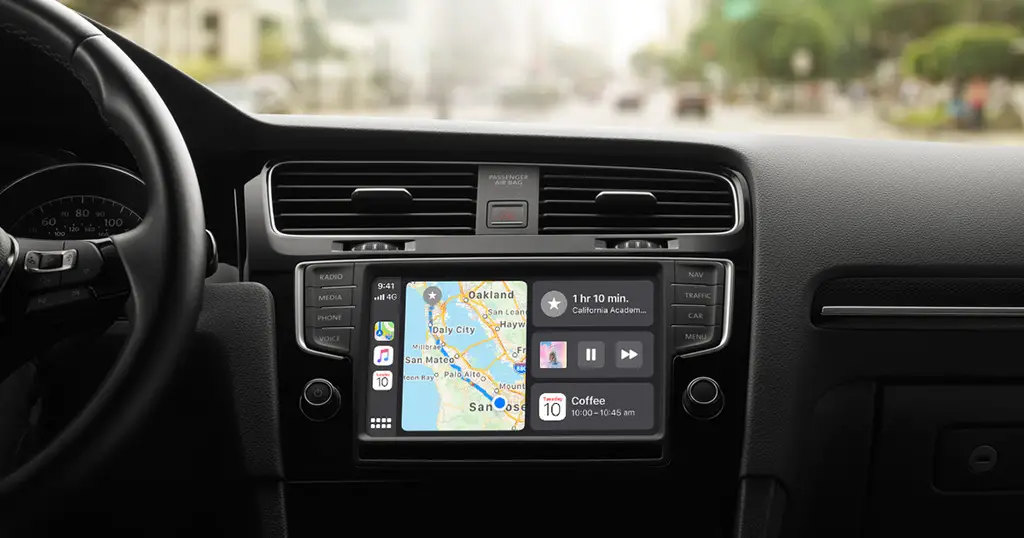New cars are pretty smart these days, but not all cars are new and in any case compatibility isn't perfect. So, can your smart home reach out to your vehicle? And do you really want it to?
Elsewhere on this site you'll find references to geolocation and geofencing - the GPS location information from your phone or another device used to perform an action.
You might set a motorized garage door opener to automatically roll up when you're within a certain distance - a distinctly smart scenario - but more is possible.
The phone, though, is likely to be the center of this equation for some time - after all it is powerful and most folk upgrade their handset more often than they replace their cars.
A good example of the functionality that a phone can bring to driving is the popular Waze app.
Waze turns your phone into a satellite navigation system (so a holder is a good idea), but Waze has a difference.
It shares your location and current speed with its own servers and shares this information back with every other user, automatically redirecting people around traffic. The more users, the more useful it is.
Mapping applications are a key showcase - there is a certain corporate rivalry ever since Apple decided it needed its own mapping app (and underlying map data) rather than depending on Google's app.
Early iPhones did just that, and the app was well liked, but Apple maps was, well, not liked. At all. Years later it's still seen as a catastrophe by Silicon Valley wonks, but it also explains why it took a while for the car platforms to support Waze despite its popularity.
Other apps are less problematic, and alternative audio platforms like Deezer, Tuneln, iHeartRadio and Audible are all available too.
APPLE CARPLAY REVIEW
Apple announced a system for compatibility with vehicles back in 2014, but it takes time for a standard like this to filter through.
The goal of this system is to bring key functionality to the in-car screen so that drivers can clearly see the mapping screen and use other functions, so it works by showing you apps you're most likely to want.
Some developers - Waze included - create apps that support CarPlay, so you don't have to make do with Apple's still imperfect maps nor the car manufacturer's.
CarPlay is currently supported by most manufacturers (2018 models and newer).
ANDROID AUTO REVIEW
Like Apple CarPlay, Android Auto is designed to integrate several functions easily into the car, and was first launched a few months after Apple's equivalent.
It uses a similar second display-like approach, so design styling can be updated, and access to Google Maps is (predictably) excellent.
Google Assistant and music control (via Google Play or other apps like Spotify) works well. Apps like Waze can make use of the system too.
Compatibility is wide - even holdouts like Jaguar Land Rover have finally added the system. Among the few major brands not offering support in new models was Toyota, until just a few years ago.
ALEXA ECHO AUTO REVIEW
In September 2018, Amazon announced a new device, the Alexa Auto, which is a little like an Echo for the car, with eight microphones (to overcome the road noise and air conditioners) but no display or access to the car's display.
In fact, philosophically there is definitely a clear connection between this and Amazon's very accessible priced Fire TV devices, in that the extra functionality is added using a standard connector (Bluetooth or a good old 3.5mm auxiliary jack) rather than, as Apple and Android have done, by spending years waiting for a (relatively) slow industry to update their products.
That's not to say that Alexa hasn't been in cars before - the 2017 Ford Fusion Energi did so in the US, although the motoring community didn't respond well to the vehicle.
Nevertheless, features like the ability to tell your in-home Alexa to start preheating your car on a cold day are a good sign of how technology is progressing.
The launch version of the Alexa Auto was available to voluntary testers in the US at $25, half the final price.
The software offering will no doubt change slightly, but in essence, Alexa Auto offers the same functionality as an Echo Dot, with the benefit of geolocation, so it can give you (spoken) directions.
It's an innocuous little black box, but it'll still spoil the lines of your dash.
ANKER ROAV VIVA REVIEW
Pre-dating Amazon's own Alexa Auto device, this in-car charger has two USB ports and a built-in Alexa.
It can play Amazon's music on request (although indirectly - it relies on your phone's Bluetooth connection to the car's speakers).
It can also use the Alexa library of free Skills, except copyrighted music services like Spotify.
Unlike the newly announced Alexa Auto it makes do with just two microphones, so it'll benefit from a quiet car.
MUSE AUTO REVIEW
Another in-car Alexa device with similar functionality as the Roav Viva. It connects to your car's Aux port or via Bluetooth - if you've always wanted Bluetooth in the car but only have Aux, the Muse will also act as a Bluetooth receiver for the car stereo. As with the Roav, it's hobbled with no Spotify (yet).
Here are some of the best smart devices for cars that are compatible with Apple CarPlay and Android Auto.




